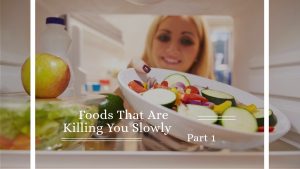You’ve probably heard the hype surrounding the health benefits of eating less meat. It’s true that vegans, those who don’t eat any animal-based foods, and vegetarians are typically at a lower risk of heart disease, type 2 diabetes, high blood pressure, certain cancers, like breast cancer and prostate cancer, and obesity.
But how will your mind and body react when you reduce the amount of meat you consume, or stop eating it completely, especially if you’ve been eating it your entire life? Сardiologists explain some of the changes you might notice, like increased energy levels and a better mood.
- At first, you may still feel hungry
For the first week or two of going meatless, psychologically, you’ll probably feel like you’re still hungry. If you’re accustomed to eating meat and a side of small vegetables at most meals, and you’re shifting yourself to mostly vegetables, you’ll probably feel like you haven’t eaten your main course. This may continue for a week or so, but your mind will get used to your new eating patterns.
- Your taste buds may change
Some people say that they lose their taste for meat after having gone without it, and that may be the case. Zinc is an important mineral that helps with taste buds and the sensitivity of the taste buds, and on a vegetarian diet you’re not getting as much of it.
- Your gut will love you
The microorganisms that live in your body – microbiome. These organisms contribute to proper digestion, a healthy immune system and healthy gut tissue. The dietary fiber in vegetables, fruits and grains help your body maintain a healthy intestinal microbiome by contributing to the growth of “friendly” bacteria. That means a vegetarian diet may improve your digestive tract health, regulate bowel movements and prevent constipation.
- You’ll increase your life expectanc
This theory was put to the test when National Geographic magazine, longevity researchers joined together to gather lifestyle secrets from the world’s longest living communities. What did they find? The world’s healthiest communities adopted a plant-based diet, low in high-fat animal products. The people within these communities mostly eat plant-based foods like legumes, tofu and leafy greens.
Research presented at a 2018 American Heart Association conference supports this, as well. Scientists found eating lots of plant-based foods full of monounsaturated fatty acids like avocado and nuts linked to a reduced chance of dying from heart disease or other causes.
It’s important that you start small. If you make drastic changes all at once, it’s going to be difficult to maintain. It’s okay to indulge once a month or so.













